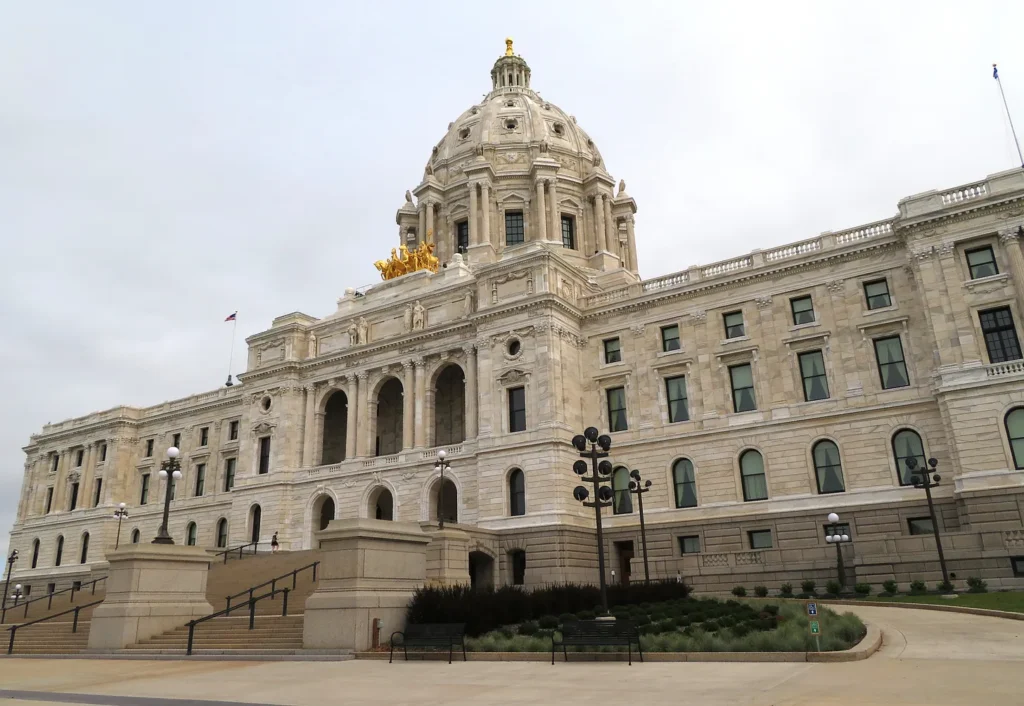A small town North Carolina mayor reflects on the recent violence and how we can change the tide of growing violence and intimidation against our leaders.
By Preston Blakely / Beacon Media
This opinion column is syndicated by Beacon Media and is available to republish for free anywhere under our guidelines.

Who could have imagined public service could be so dangerous? I became the mayor of a small town in Western North Carolina to serve my entire community. To sit in churches, barbershops, and kitchen tables, and have intimate and honest conversations. To represent and lead the people I meet, even when we cannot agree on everything.
After the assassination of former Minnesota House Speaker Melissa Hortman and her husband, Mark Hortman, on June 14, my mind drifted from serving to surviving—and my heart sank.
I wondered whether I would be dehumanized in the way that Rep. Hortman and her family were. More seem to deem carrying out violence or trying to intimidate political leaders is a permissible or righteous action. The numbers are clear—political threats, intimidation, and violence are on the rise in recent years against political leaders in the U.S., according to the Brennan Center for Justice.
My father called me and asked if I had seen what happened. He expressed fear for his son’s well-being as a mayor. All fathers worry about their children’s safety, but they should not have to because their son is a mayor. That hit home in a real way.
While I have not been threatened directly with the kind of physical violence suffered by the Hortmans, there have been those who looked straight past my humanity and tried to intimidate me simply because of who I am and the position I hold.
During a public town council meeting in 2023, someone once shoved a Confederate plaque into my face. I was the only Black person there. Being the only person in a space with your specific identity is isolating, lonely, and at times scary.
The individual went past the speaker’s podium and approached me directly to question my role in the removal of some Confederate monument — that me and our town had no role in.
This person tried to intimidate me with his actions and words.
I understand that attacks on elected officials are usually about power. The attacker directs violence towards someone they judge as undeserving of the power that a community has vested in them. Being attacked just for your role is dehumanizing, especially when the attacker doesn’t know you and is not trying to find love or grace for you.
In that instance, the room remained quiet, and the silence spoke volumes. It felt like agreement among those in the space. That was not the first time someone tried to intimidate me, and it probably will not be the last. You do not forget those moments. Public servants like me should not have to live and serve in constant fear of these moments.
Democracy is supposed to give us space to disagree. Democracy fails when disagreement turns dangerous, deadly, or personal.
At its best, politics is about people. The most meaningful dialogue I have had is in quiet places like kitchen tables, barbershops, and front porches. Those are the places where I have built trust.
Those spaces create genuine understanding without a camera, but with someone looking you in the eye and asking a question. That kind of politics can still exist, and I believe in it.
So, what do we do?
Those of us who are in public office need to make sure we are seen by everyone. We return to those spaces that remind everyone that we are just regular people—humans. Next time you see me out to eat or get my haircut, talk to me. Talk to other public servants in places where we can listen openly, honestly, and intimately. Elected officials like me have a responsibility to create a foundation based on connection, not partisanship.
We are responsible for the words we use, the stories we tell, and the way we talk about people who disagree with us. Don’t ditch accountability for us public officials – but cruelty should not be confused with accountability on issues that matter and where we might disagree. Criticism loses credibility when it dehumanizes.
Rep. Hortman and her husband did not die because of a debate. They died because someone decided they did not deserve to live. I do not want my dad to call me to make sure law enforcement is always at our council meetings. I do not know exactly how we became a country where this happens.
However, I do know we do not have to stay one.
We owe it to our communities and to ourselves to foster a culture that tolerates disagreement and insists on decency. This work is hard, needed, and worth doing. We can do it together. We must do it together.
We need to look deep down and decide the kind of politics we want for the next generations. It should be built on fellowship, not fear. It should guarantee that disagreement does not result in violence or threats.
We should be able to argue and still share a meal afterward, share a church pew on Sunday, or at least remind the public that we are all trying to serve. That is the democracy we all deserve.
